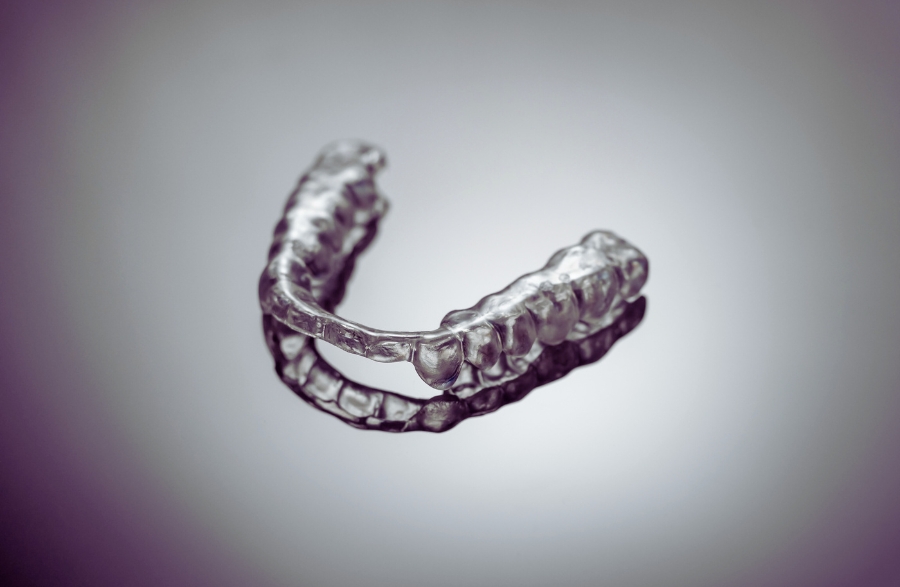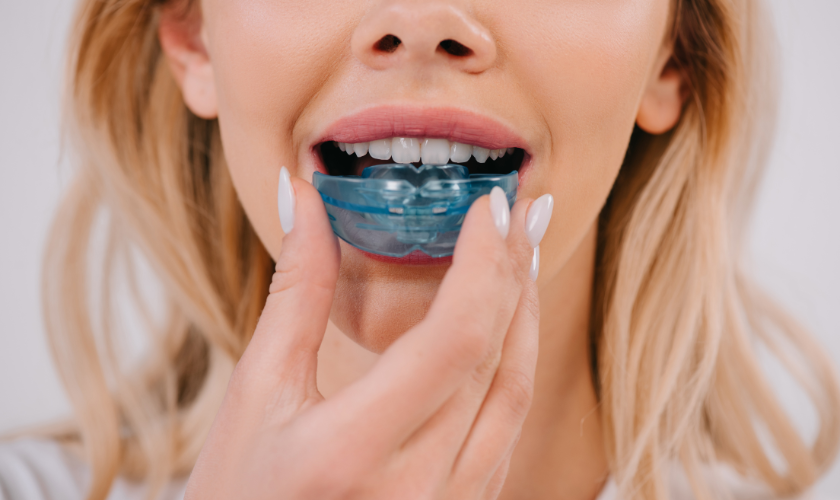
Do you experience pain or discomfort in your jaw area? Does headache accompany your jaw pain? Do regular activities like eating, talking, or yawning cause jaw pain? If your answer to all these is ‘yes,’ these might be signs you need a night guard.
Don’t just sit and struggle with the pain of teeth grinding and jaw clenching. Untreated jaw pain can cause serious dental issues down the line.
Another common issue with jaw pain is that many people don’t even realize they have it. They only pay close attention to it when they experience discomfort. Many people tend to sit with the pain instead of proactively changing the situation.
Oral appliances like a night guard are the best treatment option for jaw pain. They prevent you from grinding your teeth or clenching your jaw throughout the night. And you wake up feeling fresh and pain-free in the morning.
Let’s check out the signs that help you understand the need for a night guard:
1. Waking Up with Jaw Pain or Headaches
If morning headaches with sore jaws have become a part of your life, you might struggle with teeth grinding or jaw clenching. Grinding places excessive pressure on teeth and jaw. This leads to jaw muscle fatigue and headaches. Studies show that about 10% of adults and 15% of children grind their teeth at night. Anyone who grinds teeth during sleep must opt for night guards.
2. Noticing Worn-Down or Chipped Teeth
Constant teeth grinding can cause enamel erosion and chipped teeth. It can worsen your dental health and make your teeth prone to damage. Get rid of your dental health complications by using a night guard during sleep. It works as a protective barrier between your upper and lower teeth. So the risk of your teeth touching each other reduces, and you notice less wear and tear of teeth.
3. Hearing Clicking or Popping Sounds in the Jaw
Your jaw should move smoothly. Any clicking, popping, or stiffness in the jaw is abnormal. If you suffer from this, you must schedule a dentist visit as soon as possible. Such random noises indicate temporomandibular joint (TMJ) issues. Studies suggest that over 10 million Americans suffer from TMJ disorders. But often, the disorder goes unnoticed. A night guard can reduce strain on the jaw joint and prevent excessive movement during sleep.
4. Disrupted Sleep Due to Clenching
A common sign of teeth grinding is uninterrupted sleep at night. Many people with bruxism cannot enjoy sound sleep and wake up within small intervals. It diminishes your sleep quality. A night guard minimizes the tendency to clench the jaw and reduces jaw discomfort.
Ignoring the signs of teeth grinding can lead to severe dental problems. A night guard protects teeth and gum against damage, improves sleep, and relieves discomfort. If any of these signs sound familiar, consider speaking with a dentist about getting a custom night guard.
Contact our dentist today to discuss whether a night guard suits you.
